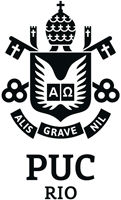Who Becomes a Criminal? Evidence From Brazil
Nós investigamos seleção à criminalidade. Especificamente, nós usamos uma base de dados inédita sobre prisioneiros de 24 dos 26 estados brasileiros e ricos dados administrativos para traçar os perfis de criminosos nascidos entre 1996 e 2002. Nós os comparamos com não-criminosos da mesma coorte usando um modelo de probabilidade linear com efeitos fixos de ano de nascimento e de lugar. Nossos achados sugerem que criminosos vem de lugares mais urbanos e vulneráveis, com uma maior exposição a outros criminosos. Além disso, nossos resultados indicam que a estrutura familiar importa e que pais de criminosos são economicamente mais ulneráveis do que pais de não-criminosos. Por fim, criminosos tem piores resultados educacionais, um histórico de detenção juvenil, e piores resultados no mercado de trabalho.
Bernardo Rennó Duque.
Orientador: Gustavo Gonzaga.
Co-orientador: Claudio Ferraz.
Banca: Joana da Costa Martins Monteiro. Tomás Guanziroli.

